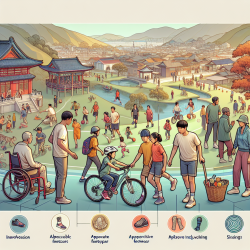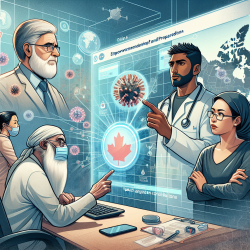Medication Therapy Management (MTM) is a critical component of healthcare, particularly for individuals with complex conditions like spinal cord injury/dysfunction (SCI/D). A recent qualitative study titled "The strategies are the same, the problems may be different" explores the experiences of healthcare and service providers in managing medication therapy for persons with SCI/D. This research provides valuable insights that can help practitioners improve their MTM skills and encourage further research in this area.
Understanding the Challenges
The study highlights several unique challenges faced by healthcare providers when managing medication therapy for SCI/D patients. These challenges include:
- Patient Self-Management Skills: Patients with SCI/D often require tailored education and support to manage their complex medication regimens effectively.
- Provider Knowledge and Confidence: Providers need specialized knowledge of SCI/D-related medications and conditions to offer optimal care.
- Provider-Patient Relationships: Building trust and open communication with patients is essential for successful MTM.
- Interprofessional Collaboration: Effective collaboration among healthcare professionals is crucial to address the multifaceted needs of SCI/D patients.
- Provider Funding Models: Current funding models may limit the time available for comprehensive MTM, highlighting the need for systemic changes.
Strategies for Improvement
The research suggests several strategies that practitioners can implement to enhance their MTM skills:
- Tailor Medication Plans: Customize medication regimens to fit individual patient needs, considering their physical limitations and lifestyle.
- Enhance Education Efforts: Provide thorough education on medication use, potential side effects, and alternative therapies to empower patients.
- Cultivate Strong Relationships: Foster trust and open communication with patients to improve adherence and treatment outcomes.
- Pursue Continuous Learning: Engage in ongoing education about SCI/D-specific medications and therapies to boost confidence and competence.
- Advocate for Systemic Changes: Support changes in funding models to allow more time for patient care and interprofessional collaboration.
The Role of Technology
The study also highlights the potential of technology-supported consultations as a means to overcome some of the barriers in providing effective MTM. Video conferencing and telehealth can facilitate easier access to care for patients with mobility challenges, allowing practitioners to maintain regular follow-ups without the need for physical visits.
A Call for Further Research
The study concludes that while there are commonalities in MTM practices across different patient populations, the specific needs of SCI/D patients require further exploration. Future research should include perspectives from both healthcare providers less familiar with SCI/D and from patients themselves. Understanding these perspectives can lead to more comprehensive care strategies and improved patient outcomes.
If you are a practitioner looking to enhance your MTM skills or interested in contributing to this field of research, consider delving deeper into this study. To read the original research paper, please follow this link: "The strategies are the same, the problems may be different": a qualitative study exploring the experiences of healthcare and service providers with medication therapy management for individuals with spinal cord injury/dysfunction.










